
Embarrassing
 المؤلف:
L.A Hill
المؤلف:
L.A Hill
 المصدر:
Advanced-Anecdotes in American English
المصدر:
Advanced-Anecdotes in American English
 الجزء والصفحة:
56-1
الجزء والصفحة:
56-1
 21/10/2022
21/10/2022
 1817
1817
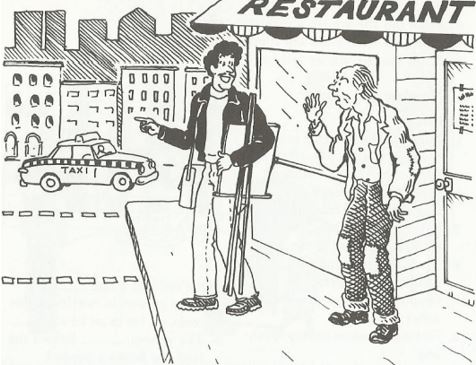
An artist who did not have much money, but was a very kind man, was coming home by train one day. He gave his last few coins to a beggar, but then he saw another one, and forgot that he did not have any money. He asked the man if he would like to have lunch with him, and the beggar accepted, so they went into a small restaurant and had a good meal.
At the end, the artist could not pay the bill, of course, so the beggar had to do so.
The artist was very unhappy about this, so he said to the beggar, "Come home with me in a taxi, my friend, and I'll give you back the money for lunch."
"Oh, no!" the beggar answered quickly. "I had to pay for your lunch, but I'm not going to pay for your taxi home too!"
A Answer these questions:
- What kind of man was the artist?
- What had he forgotten about?
- What did he ask the beggar to do?
- Where did they go after that?
- What happened at the end of the meal?
- What did the artist say the?
- What did the beggar answer?
B Which of these sentences are true? Write down the correct ones.
- The artist in this story invited a beggar to have lunch with him.
- The artist in this story asked a beggar to give him lunch.
- The beggar thought that he would have to pay the bill.
- The beggar didn't expect to pay the bill.
- The artist wanted the beggar to come home with him by taxi so they could have lunch together.
- The artist wanted the beggar to come home with him by taxi so he could pay him back for the lunch.
- The artist was going to pay for the taxi ride when he got home.
- The artist didn't want to pay for the taxi ride himself.
- The beggar thought that the artist wanted to have a free taxi ride.
- The beggar thought that the artist would pay for the taxi when he got home.
C Write the number of the correct sentence under each picture:
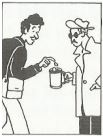
1-He gave a beggar his last few coins.
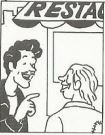
2-He took him to a restaurant.
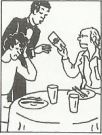
3-The beggar paid the bill for lunch.

4-The beggar refused to get in, because he didn't want to pay for that too.

5-Then he met another beggar on the street.
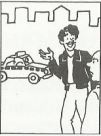
6-Then the artist took the beggar to a taxi.
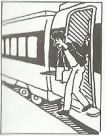
7-An artist got out of a train one day.
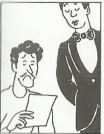
8-When the waiter brought the bill, the artist could not pay it.
 الاكثر قراءة في Advanced
الاكثر قراءة في Advanced
 اخر الاخبار
اخر الاخبار
اخبار العتبة العباسية المقدسة


